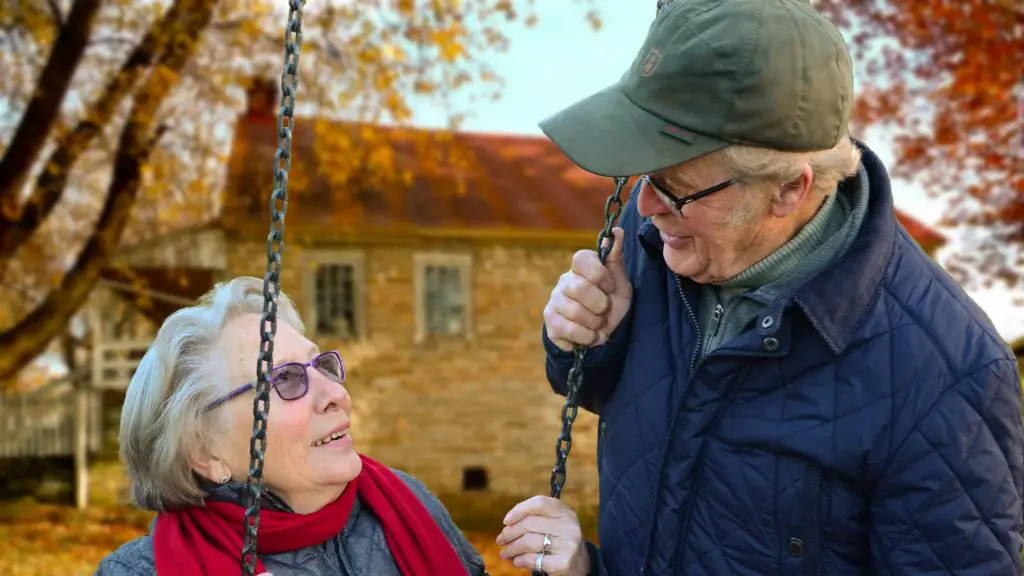This post may contain affiliate links, which means I’ll receive a commission if you purchase through my link, at no extra cost to you.
Average Age of Law School Students
Best age to go to law school?
What is average age of law students and which age is best to go to law school? Is it too early? Is it too late? Let’s see about that. According to LSAC and ABA data, the average law school age range for law students is 22-24. Some other sources cite law school average range at 22-30, with the average age of law students – graduates at about 26 years old. But the age of law school student should be a secondary factor when deciding to go to law school, and any age above 22-26 should not stop a potential student from applying.
Age in law school can be a useful asset. Life experience and previous work experience may provide benefits to newbie law students and law graduates.
First of all, there is no good or bad age to go to law school. Age is just a number and what matters are your goals. Why do you think you need, to go to law school at your current age? What will you accomplish besides incurring student debt? Do you think you have time to build an attorney career? Do you think that due to your age you have developed good self-discipline and wisdom to practice law all day long?
Age for law school does not matter much, but it matters for the chances of finding employment after graduation. Average age of law students is relatively young and employers hunt for them because, well, they are happy to start working for less money.
Law school does not set age limit for applicants and does not impose age requirements – that would be discriminatory.
Allegedly, the Harvard law school age range is about 25, Yale law school is also 25, and numbers about the same at Columbia school of law.
Therefore, average age of law students also varies from law school to law school.

Going to law school at age…
Going to law school at age 30 (law school age 30)
This should be a no-brainer. Some people think that going to law school at age 30 is kind of old. I saw people ask this question on forums quite a bit and I am kind of puzzled. Age 30 is totally ripe age to go to law school, because law student candidate is still relatively young and full of energy, while already has some life wisdom, self-discipline and study skills.
Even more so, law school at age 30 means law student potentially has about 30-40 years of productive law practice ahead. This is enough for a fulfilling career and to repay student debts, as long as he or she will enjoy being a lawyer. On the other hand, I think age 30 may even be kind of young because not everyone figured out their desired career path.
At the same time, 30 years old is probably enough to develop a certain life perspective, life skills, and communication skills. In fact, in my law school, some of the top law students were in their 30s. Apparently, they had sufficient life experience to set their minds on career goals, while still had enough energy to study like crazy. Law school is not easy.
At 30 years old, as a law student, it is likely that you may already have a life partner who can help you go through law school, even by paying rent and some bills. You both are mature enough to take law school studies seriously. The final point is that 30 still fits closely well to within average age of law students. Going to law school at 30 is not too old whatsoever.
Family and Children
Well, students aged 30+ may have family and young children and think to wait while children grow up a little. I would say this is flawed consideration. I have seen law students with young children, including single moms, succeed and get to the top of the class. First of all, children never grow up for a parent. On the other hand, why not get law school done while children are still growing up?
If law student has significant other or parents to help to care for children, then this may be a good enough set up to apply to law school and finish the program in three or four years (if part-time). Because there will never be good and perfect timing to go back to college. The earlier law graduate passes the bar exam and starts attorney career – the better. As long as law practice is what he or she wants to do.

Going to law school at age 40. Should I go to law school at age 40?
Whether to go to law school at age 40 or not is a major and serious decision. I cannot say that age 40 generally fits within the average age of law students range. At this point in time, a person most likely is about to enter his or her second or even third career, sometimes even after a first successful career.
One thing I want to note is that if your life has been a waste, and you are not sure as to why you want to do law school at this age – I would recommend not to rush into filing an application. Yes, there is less time left for a career, but at this age, a person should already know what she or he wants to do. Or, rather, know what he or she can and cannot do well. And must decide on the basis of existing and already known personal strengths and weaknesses.
I have seen people at 40 years old changing career to a lawyer. Some of them even succeeded tremendously. A couple of very successful lawyers who enrolled in law school at 40+ went on to build their successful private practices with nice offices and solid income. On the other hand, they already had proven the ability to succeed in their first career. When they applied for law school, they knew that they could deliver consistent results.
In fact, one of my first employers was an attorney who went to law school at the solid age of 42. He finished law school, worked for a law firm for about 3 years, then went on to build his private practice. In his prior career, he was a successful engineer and went on to be a higher-ranking manager at one of the largest US companies. He proved his ability to succeed, then he switched to law and succeeded as an attorney.
Starting law school at age 40
Age 40+ in law school can be an advantage. Life experience is an asset and older law student is more likely to skip parties and stay focused at law school. Additionally, such a person is likely to already have a network of connections to help draw on it to build a law practice.
I have seen former police officers and former military people enter law school in their late 30s or early 40s. I do know one former police officer who went to law school, jumped into the top 10% of his first-year class and went on to a successful career. He was a very intelligent person.
At this age, however, an adult law student should be aware that it will be more difficult to change a career once again if he or she is not satisfied with working at law. There is fierce competition for jobs and students in their 40s will have to compete with younger law graduates, who would be willing to work for smaller pay just to get their foot in the door.

Law school at age 40
Being in law school at age 40 is not too much different from age 30. The law student will have to spend a substantial amount of time on classes and self-studying. Therefore, an adult law student must ensure that he or she allocates sufficient time for studying and that he or she settles some of the adult life problems prior to going to law school just to make sure that nothing distracts from preparing for classes and then for the bar exam.
It probably does not make sense for an adult law student at 40 to party often with 22-25-year old kids. First of all, why would you want to take responsibility for their actions? Then, their energy level might be different and they can more easily manage to drink and study the same night. Plus, they have more time to correct their mistakes if they screw up law school study.
Adult law student does not have that luxury and so must be focused at maximum on finishing law school and passing the bar exam. The best is to form a study group with law students with law school age range of 30-50, who also take the whole ordeal more seriously.
And while in law school, I recommend for law students at 35-40+ to do everything possible to obtain legal experience by clerking, internship or legal clinic or other possible ways. Competing with young hungry graduates will not be an easy task. Try to get your foot in the door somewhere for a few years. In fact, some law offices may more likely have adult law students as a clerk, than a 25-year-old. Or, the other way around. This is life.
Graduating form law school after 40 almost guarantees some form of age discrimination for mature individual/young attorney looking for a first job.
For adult students LSAT score is even more critical than for youngsters because of the above. Better school – more chances to be employed after graduation and passing bar exam.
I always recommend taking LSAT prep course to boost the score, but not everyone hears me. LSAT course is an investment, not an expense.
Magoosh LSAT course is among several courses I keep recommending for their price affordability, flexible options, free trial and easily digestible material. You can check their 7-days free trial option.
Opportunity cost
One consideration for already successful professionals in their 30s or 40s is an opportunity cost. If you are already making decent money – should you really take on such a serious financial burden by paying for law school or using student loans? Law school years in total can cost $100,000 – $120,000 for private law school. What about three-four years of lost wages, if you go to law school full time? Is it worth for you? Can you do without it? Try lower-cost public law school with in-state tuition.
For successful adult law student candidates, I suggest to evaluate your decision based on many factors, including law school rank, and the possibility to work while going to law school part-time or in the evening. Because full-time first year is brutal and you are very unlikely to have the opportunity to work. Read my post about law school and full-time work. Read the next section about going to law school at the ripe age 45 – it applies to you too.

Law school at age 45
Going to law school at 45 or later is not impossible, but an even more serious decision. This age is out of overall range for average age of law school students and requires some prior thinking. Why do you think you need to go to law school? Why do you want to make this huge financial commitment? Are you going to pay from pocket or use student loans? What is your opportunity cost now? Do you work, and have a career?
At this point in time, many people have children who are possibly entering their own college endeavors. And this may be a good time to think about changing careers because 45 is not too old. But, it is kind of pushing it to the late side.
Do you have a plan to compete with young, hungry, law graduates, who have enough energy to allow law firms to work them to death for cheap? Are you planning on obtaining own clientele? You MUST have a plan at this age and must know the consequences of your decision, because, you do not have much time to regret your decision later. Are you sure you do not want to go to medical school instead? Or learn to code for cheap? Did you talk to your spouse and family?
Do you have a vision of why you think you will succeed in a legal career? You are practically guaranteed to face age bias after graduating from law school. On the other hand, you may have very serious intellectual, work, life and communication skills that will help you establish yourself in the legal field. Most likely you are sufficiently wise now to make the right decision.
Keep in mind, that while lawyers can practice into their 70s or even 80s, going to law school after 45 and incurring significant debt can be a problem because you do not have so many years of practice left. 15-20 years for many may not be enough to repay student loans, and then you may be facing financial problems when you are about to enter retirement age.

Other considerations for 45+
Well, this is definitely not the average age of law students. But, not all lost at 45. Its an age of beauty and brains. I do know a couple of lawyers who went to law school after 45. They manage. They have work. But they like what they do and they entered the legal profession when it was not so saturated like it is now. And some do not like law practice but it is too late to switch.
According to general statistics, the majority of adult law students who graduate when they are over 40 after graduation work in smaller firms with 10-15 or fewer lawyers, or go into private practice. Why? because large law firms know they cannot work adult people to half-dead.
I know one former doctor who exited the medical profession due to a major lawsuit and went to law school. Well, his previous experience, I think, eventually hugely helped him to land a job somewhere in a law firm practicing medical malpractice law. What is the existing skill set that can propel you into a well-paid attorney position despite your age?
Note, that it will be difficult to enter a new career as a newbie after you already have matured, with solid work experience. You are about to start from zero, just like new and inexperienced law graduate from your law school class. Get ready to feel stupid and humiliated in the first few years of career. That is ok – you must go through this.
Make mistakes and learn. Just like any 25-year old. Likely, employers will treat you with more respect than they would treat a 25-year old newbie attorney, but they will also have higher expectations from you due to your life and work experience. I also suggest not to engage in a personal relationship with much younger law students – it may lead to some trouble down the road.
But if you do get hired at the law firm then get ready for a few years of brutal work hours – 50-80-hour work weeks. You will be told what to do. You will be humiliated for your mistakes. You will have to work evenings and weekends. Even if you open your own law practice you will have to work a LOT and also chase clients, which is a full-time job in itself. Are you ready for this? Are you healthy enough and do you have much energy? Watch your diet and go to the gym plus outdoor activities.
Going to law school at 50
Such older applicants should know about the disadvantages of going to law school at such an adult age. First of all, a number of disadvantages I described above for the 30s and 40s are even more relevant and pressing when law school candidate is 50 or over. Age bias is very relevant in this situation.
First of all, many law firms do not hire such adult law graduates and prefer someone younger age. You really need to have some interesting professional background for them to hire you – engineer, doctor, a pharmacist for example.

Law school after or over 50
You will be changing your career at a very respectable age and will compete with 25-40-year olds. Energy is important for law practice, especially in the first 3-5 years when you are still learning. After 3-5 years law practice may become familiar and you will complete tasks almost automatically, but first years can be very stressful.
At the same time, intellect and wisdom at 50 can beat many odds. If you have solid legal industry experience behind your back that may help a lot. Law firms will see that you were, for example, a paralegal, law enforcement officer, or some kind of legal clerk, or government employee, meaning, the law firm will look for you skills, knowledge of the industry or government, your contacts may be, and your ability to be a very valuable resource.

Important for any age in law school
Keep in mind that some people enjoy law school, especially at an older age – as a change of scenery – but they do not like to practice law so much. This is very tricky because of student loan debt. Some adult law students like practice more then they liked law school. It happens too.
Try to obtain some experience and research personally what lawyers do at work.
Law practice is a huge responsibility, making very difficult decisions, solving serious problems, chasing paying clients because 80% of law service needs go unmet because people cannot afford to pay lawyers. It is not easy in financial respect too. I suggest to pay cash for law school and do not incur student debt at such an adult age. Or, try to go to law school for cheap.
Shall you pursue law school:
-
- study hard,
- study smart,
- refer to 2Ls and 3Ls for advice, obtain from them outlines for your specific classes – for the same professor that you have. Treat them for a cup of coffee, or even a drink – make contacts.
- make sure you get the best grades possible because grades still do matter even at respectable adult age. Good grades may get you hired despite age bias in the legal profession.
- Sit in front rows to hear professor,
- Make sure you get law school supplements and black-letter law outlines and use them from day one. This will help you to study easier and more efficiently. Use them as a guide in your studies. This also helps to gradually prepare for the bar exam.
- Taker as many practical courses or clinics or internships as you can. Do not follow a passion – you can learn the area of law later in life, but you need practical experience to get you started.
- Make sure you allocate time and money for bar exam preparation course after you finish law school – do not save on that.
- Make sure you allocate sufficient finances and set up a stable life situation set up to last through the period of your law school studies.
- Watch your diet and lead a healthy lifestyle.
- Intern and do summer work in the location where you want to practice.
- Go to law school in the location where you want to live and practice – make connections there. Plus, local firms will now your law school name.
Good luck to you! And remember – you can succeed at any age if this is your thing and you really desire it.

